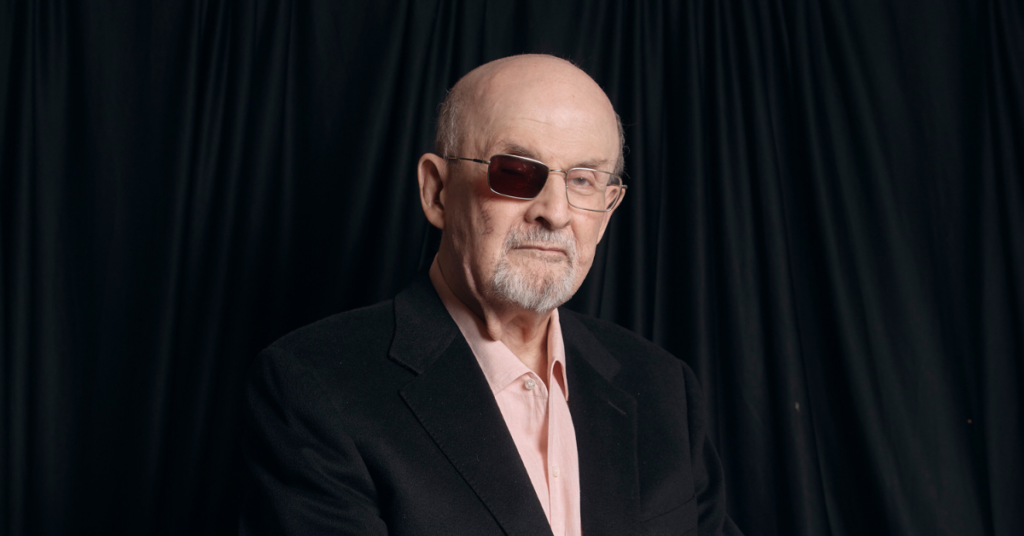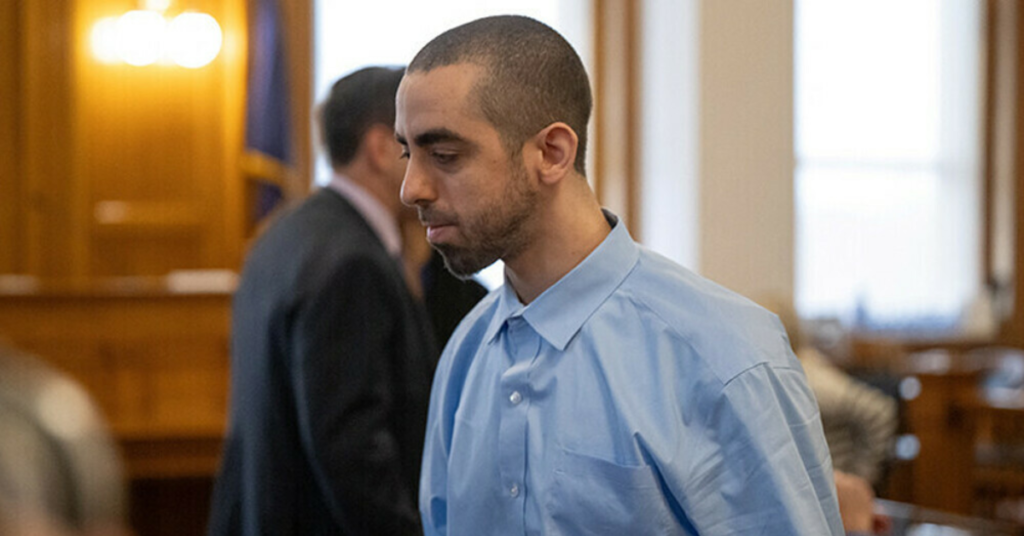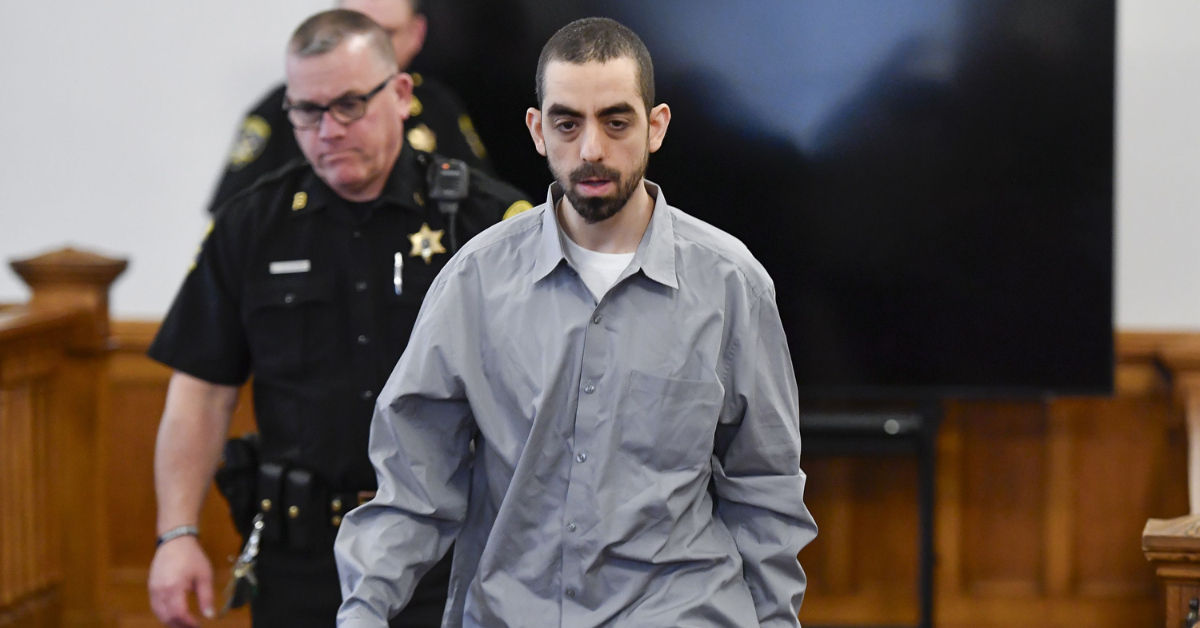A New Jersey man has been found guilty of attempted murder and attempted assault in the second degree for the 2022 attack on renowned author Salman Rushdie at the Chautauqua Institution. A jury convicted 27-year-old Hadi Matar after eight days of testimony, with deliberations lasting just under two hours before reaching a unanimous verdict.
Matar was arrested on August 12, 2022, after storming the stage during a public discussion and stabbing Rushdie multiple times. The attack also injured Ralph Henry Reese, the founder of the City of Asylum in Pittsburgh, who was scheduled to speak alongside Rushdie. Prosecutors argued that Matar approached Rushdie from behind while he was seated and continued attacking him as he attempted to move away.
During closing arguments, Matar’s defence attorneys, Andrew Brautigam and Nathaniel Barone, contended that prosecutors had not proven their client intended to kill Rushdie. They emphasized that no investigation was conducted into Matar’s social media or background and pointed out that Rushdie himself described the incident as an assault rather than attempted murder.
After the verdict, Barone expressed disappointment with the court’s handling of the case, suggesting that Rushdie’s global notoriety may have influenced the charges and the way the case was presented.
However, Chautauqua County District Attorney Jason Schmidt stood by the prosecution’s case, stating that the video evidence was undeniable. He noted that multiple camera angles captured Matar’s attack, making the evidence compelling. Schmidt also highlighted the challenges of bringing the case to trial, given his office’s limited resources and heavy caseload, but praised his team for their dedication to securing a conviction.
Matar’s sentencing is scheduled for April 23, 2025, at the Chautauqua County Courthouse. He faces a maximum sentence of 25 years in prison, the highest penalty allowed for a second-degree attempted murder conviction.
The attack on Salman Rushdie shocked the literary world and drew widespread condemnation. Rushdie, known for his novel “The Satanic Verses,” has faced threats to his life for decades. The book sparked outrage among some Muslim communities, leading to a fatwa calling for his assassination issued by Iran’s Supreme Leader in 1989.

For years, Rushdie lived under tight security, though he had gradually re-entered public life in recent years. The attack at Chautauqua Institution renewed concerns over his safety and the ongoing risks faced by writers who challenge religious and political norms.
In the aftermath of the attack, Rushdie suffered severe injuries, including damage to his liver and the loss of vision in one eye. Despite the trauma, he has continued to speak publicly about the importance of free expression and standing against censorship. In interviews, he has acknowledged the pain of the attack but remains defiant in his commitment to writing and advocating for free speech.
Security at public literary events has since been heightened, with organizers reassessing protocols to protect speakers. The Chautauqua Institution, known for hosting intellectual discussions and cultural events, faced scrutiny for its security measures at the time of the attack. In response, the organization has implemented stricter guidelines for future events.
Matar’s background has also drawn attention, with reports suggesting he harboured extremist views and had shown admiration for Iran’s Islamic Revolutionary Guard Corps on social media. However, his exact motives remain unclear. Prosecutors maintained that the evidence overwhelmingly pointed to a premeditated attack, while the defence insisted that the case was overcharged and that Matar did not intend to kill Rushdie.

The trial proceedings included testimonies from witnesses who were present at the event, forensic experts, and law enforcement officials who responded to the scene. Video evidence played a crucial role in the conviction, showing the rapid and violent nature of the attack. Jurors also considered Matar’s statements to investigators, though his defence argued that they were taken out of context.
Legal experts suggest that Matar’s conviction sends a strong message about the consequences of violence against public figures, particularly those who promote controversial ideas. The case has also reignited debates over freedom of speech and the dangers faced by those who challenge ideological extremism.
As the sentencing date approaches, Rushdie has expressed gratitude for the support he has received from readers, fellow authors, and human rights organizations. He has reiterated his belief in the power of literature to provoke thought and inspire change despite the risks involved.
Matar’s fate now lies in the hands of the court, which will determine the severity of his sentence. While he faces up to 25 years in prison, legal analysts note that the judge may consider factors such as his lack of prior criminal history and any expressions of remorse when deciding the final penalty. Regardless of the outcome, the attack on Salman Rushdie remains a stark reminder of the persistent threats faced by writers who dare to challenge the status quo.
Disclaimer: This article has been meticulously fact-checked by our team to ensure accuracy and uphold transparency. We strive to deliver trustworthy and dependable content to our readers.








